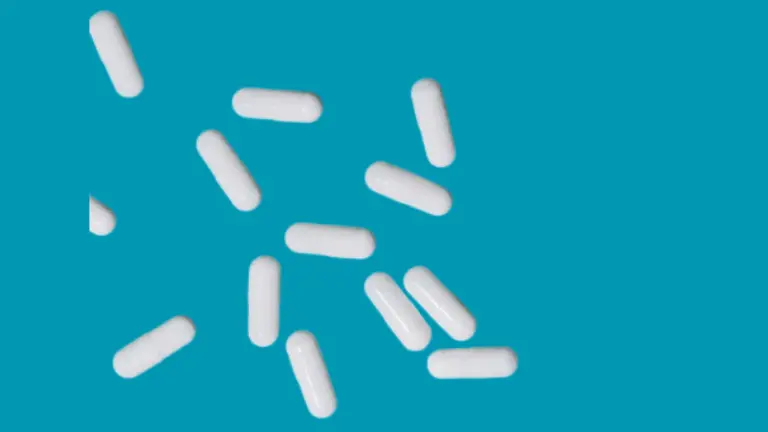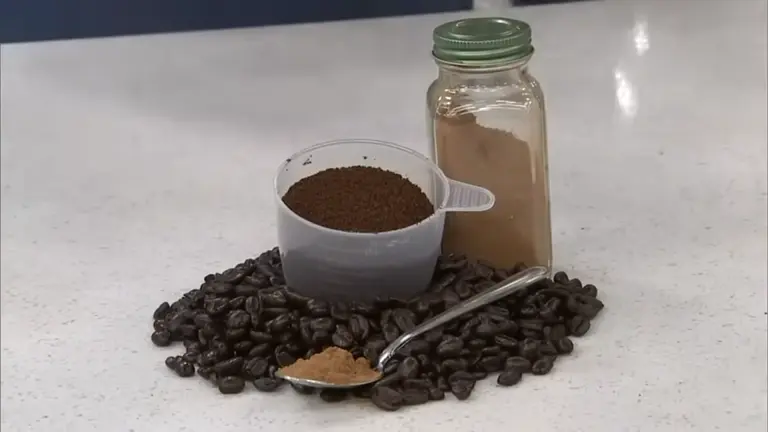Penile erection occurs when the paired corpora cavernosa within the penis become engorged with blood. This vascular filling results from the relaxation of smooth muscles in the penile arteries and erectile tissue.
Understanding the mechanics of penile erection is crucial for recognizing male sexual health issues. The process is typically initiated by sexual arousal, which activates the nervous system and increases blood flow to the penile sinuses. These sinuses, or cavities, expand with the influx of blood, causing the penis to grow in size and become rigid.
The corpora cavernosa, alongside the corpus spongiosum, are the key structures that facilitate this change, allowing for sexual intercourse and reproduction. Erections are a natural and important function, and their occurrence can be a sign of good vascular and nervous system health. Disruptions in this process can lead to conditions such as erectile dysfunction, making this topic relevant not only for sexual well-being but also for overall men’s health.

Credit: www.sciencedirect.com
Anatomy Of Penile Erection
Understanding how a penile erection occurs is fascinating. The penis is more than just an organ. It is a complex network of blood vessels and tissues. These work together to create an erection. Let’s explore the key parts that play a role in this process.
The Role Of Corpora Cavernosa
Corpora cavernosa are two long chambers inside the penis. They run along the organ’s length. These chambers fill with blood during arousal. This causes the penis to become erect. The walls of the corpora cavernosa are made of spongy tissue. This tissue can expand and contract. Blood flow into these chambers is crucial for an erection.
- Blood enters, chambers expand
- Pressure traps the blood
- Penis becomes rigid and erect
The Spongy Urethra And Its Function
The spongy urethra runs through the corpora cavernosa. It carries urine and semen out of the body. This tube is also essential during erection. It keeps its shape even when the penis is erect. This lets semen pass through during ejaculation.
- Urethra carries urine and semen
- Runs through corpora cavernosa
- Maintains shape during erection
Physiology Behind Erection
The physiology behind an erection is a complex process. It involves various systems in the body working together. Blood flow increases in the penis. This leads to an erection.
Neural Pathways Involved
Erections start in the brain. Sexual thoughts or sensory experiences trigger them. The brain sends signals down the spinal cord. Nerves in the pelvic region pick up these signals. These nerves tell blood vessels in the penis to expand. Blood flow increases. The penis becomes firm.
- Sensory and mental stimulation cause neural signals.
- Nerves relay these signals to the penile area.
- Blood vessels respond by allowing more blood into the penis.
Hormonal Influence On Erection
Hormones play a key role in getting an erection. Testosterone is very important. It drives the libido. It also helps in maintaining an erection.
| Hormone | Role in Erection |
|---|---|
| Testosterone | Boosts sexual desire and erection quality. |
| Oxytocin | May enhance erectile function and climax. |
Other hormones like oxytocin also have effects. They can enhance the experience. They can make the erection better.
Balance is key. Hormones must be at the right levels. Too much or too little can cause problems. Healthy lifestyle choices support hormone balance.
Blood Flow Dynamics
Understanding blood flow dynamics is key to comprehending how penile erections occur. This process involves complex mechanisms of arterial inflow and venous outflow restriction. Let’s explore these mechanisms in detail.
Arterial Inflow Mechanism
The arterial inflow mechanism is the first step towards an erection. Blood rushes into the penis through arteries. This happens because sexual arousal triggers signals. These signals tell arteries to widen. Wider arteries allow more blood to enter the penis.
- Sexual arousal starts the process.
- Arteries in the penis widen.
- Blood flow to the penis increases.
Venous Outflow Restriction
For an erection to stay, venous outflow restriction is necessary. Once the penis fills with blood, the veins that usually drain blood get compressed. This compression prevents blood from leaving the penis quickly.
- Veins get compressed.
- Blood is trapped, sustaining the erection.
- The erection lasts until sexual arousal diminishes.
This dual mechanism ensures that the penis can become and stay erect for sexual activity. The balance between arterial inflow and venous outflow restriction is vital for a healthy erectile function.
The Endothelial Lining And Nitric Oxide
The Endothelial Lining and Nitric Oxide play crucial roles in penile erection. These elements ensure blood flows smoothly into the sinuses of the paired corpora cavernosa. Understanding their functions can shed light on the complex process of achieving an erection.
Nitric Oxide Synthesis
Nitric oxide (NO) synthesis begins in the endothelial cells. These cells line the blood vessels. They react to signals, starting a chain reaction. This reaction produces NO, a gas. NO is vital for erections.
- Signals: Triggered by thoughts, senses, or physical stimulation.
- Enzymes: Convert amino acids into NO.
- NO release: Quickly diffuses across cell membranes.
Impact On Vascular Dilation
NO impacts vascular dilation significantly. It relaxes smooth muscle cells. This relaxation allows blood vessels to expand. More blood can then flow into the corpora cavernosa. This process leads to an erection.
- NO activates enzymes.
- These enzymes increase a molecule called cGMP.
- cGMP relaxes smooth muscle cells.
- Blood vessels dilate, increasing blood flow.
Psychological Factors Influencing Erection
The mind plays a key role in the process of penile erection. Thoughts and feelings can either promote or hinder this physical function. Understanding these psychological factors is crucial for maintaining sexual health. Let’s explore how emotions and stress affect erection quality.
Emotional Triggers
Emotions are powerful and can lead to a penile erection. Positive emotions such as happiness and attraction can trigger arousal. Negative emotions like fear or guilt may prevent it.
- Love and intimacy often lead to arousal.
- Anxiety can block erection signals.
- Excitement boosts blood flow to penile sinuses.
- Depression often reduces libido and erection quality.
Stress And Erection Quality
Stress is a major factor that can impair erection quality. The body’s stress response may restrict blood flow to the penis, making erections difficult.
| Stress Source | Impact on Erection |
|---|---|
| Work pressure | Can lead to fatigue, affecting libido. |
| Financial worries | Might cause distraction, lessening focus on arousal. |
| Relationship issues | May result in decreased sexual desire. |
| Health concerns | Can induce anxiety, hindering erection. |
Managing stress through relaxation techniques and healthy lifestyle choices is essential for good sexual function.
Medical Conditions And Erectile Function
Erectile function is a complex process. It involves the brain, hormones, emotions, nerves, muscles, and blood vessels. Problems with any of these can block the way to achieving an erection. Medical conditions often play a major role. They affect the flow of blood and nerve function. Both are crucial to penile erections. Let’s delve into how specific health issues can impact this process.
Impact Of Cardiovascular Diseases
Heart health is key to erectile function. Healthy arteries and veins are a must. They carry blood to the penile sinuses. These sinuses fill up and cause an erection. Cardiovascular diseases can damage blood vessels. This damage can reduce blood flow to the penis. Common heart conditions include hypertension and atherosclerosis. Both can lead to erectile dysfunction (ED). The table below shows how they affect erection:
| Condition | Effect on Erection |
|---|---|
| Hypertension | Hardens arteries, reduces blood flow |
| Atherosclerosis | Builds plaque in arteries, blocks blood |
Diabetes And Nerve Function
Diabetes affects blood sugar levels. High sugar can harm blood vessels and nerves. Nerves play a big part in getting an erection. They send signals from the brain to the penis. Diabetes can cause neuropathy. This is when nerves get damaged. Damaged nerves can’t send signals well. This means no signal, no erection. Below is a list of how diabetes can lead to ED:
- Blood vessel damage: Less blood to the penis
- Nerve damage: Poor signal transmission
- Sugar control: Key to preventing ED
Keeping sugar levels in check is critical. It helps protect nerves and blood vessels. This can help maintain erectile function.
Pharmacological Interventions
Men facing erection issues seek effective treatments. Pharmacological interventions can help. These medicines improve blood flow to the penis. This helps men achieve and maintain an erection.
Pde5 Inhibitors And Their Action
PDE5 inhibitors are a popular solution. They target a specific enzyme in the body. This enzyme affects blood flow to the penis.
- Sildenafil (Viagra): Boosts blood flow for erections.
- Tadalafil (Cialis): Works longer, up to 36 hours.
- Vardenafil (Levitra): Similar to Viagra, but different dosing.
These drugs work when a man is sexually stimulated. They allow more blood to fill the sinuses in the penis. This leads to an erection.
Alternative Medications And Treatments
Alternatives to PDE5 inhibitors exist. They suit those who cannot take traditional pills.
| Medication | Method | Effect |
|---|---|---|
| Alprostadil | Injections or urethral suppository | Directly causes an erection |
| Testosterone Replacement | Pills, patches, or gels | For low hormone levels |
| Herbal Supplements | Oral intake | May support erectile function |
Non-pharmacological options include vacuum erection devices, penile implants, and lifestyle changes. Consult a doctor for the best choice.
Lifestyle Choices And Erection Health
Lifestyle choices deeply impact erection health. Simple changes can improve it.
Diet And Exercise
Eating right and staying active are key. They help blood flow.
- Fruits and vegetables: Rich in vitamins for good health.
- Whole grains: Improve heart health, boosting erections.
- Lean meats: Provide protein, avoid fat build-up.
Exercise should be regular. Aim for 30 minutes a day. It helps blood flow and stamina.
Avoidance Of Risk Factors
Avoiding bad habits is crucial. They can harm erection health.
- Smoking: Damages blood vessels, affecting erections. Quitting helps.
- Alcohol: Limit intake. Too much can weaken erections.
- Stress: High stress levels hurt erections. Find ways to relax.
Follow these steps for better health and stronger erections.
Recent Advances In Erection Research
Welcome to a fascinating exploration of the latest breakthroughs in understanding how penile erections work. Scientists and medical experts have been hard at work uncovering new ways to address erectile dysfunction. Let’s dive into some of the most promising areas of research that are changing lives and offering hope.
Stem Cell Therapies
Stem cell therapy stands as a beacon of innovation. This treatment uses the body’s own cells to repair and regenerate damaged tissues in the penis. It can potentially restore natural erections.
- Focuses on regenerating erectile tissue
- Can improve blood flow
- Promotes nerve tissue health
Recent trials have shown that stem cell injections into the penis may result in improved function. These advances suggest a future where erectile issues can be reversed.
Innovative Prosthetic Solutions
Prosthetic implants have been around, but technology has made leaps. The new implants are more reliable and comfortable than ever before. They mimic natural function closely.
Key features of the latest prosthetic solutions:
| Feature | Benefit |
|---|---|
| Better materials | Enhances durability |
| Improved design | Offers a more natural feel |
| Customizable fit | Ensures comfort for the user |
Researchers are also exploring ways to incorporate smart technology into prosthetics. This could allow for remote adjustments and monitoring.

Credit: link.springer.com
Cultural And Historical Perspectives On Erection
The human body has fascinated cultures throughout history. Erections are no different. Let’s explore how ancient societies understood this natural phenomenon and how modern attitudes compare.
Erection In Ancient Medicine
In ancient times, people saw erections as signs of health and fertility. Ancient Egyptians worshipped a god of creation, Min, who was often shown with an erect penis. They believed erections were a key to life itself.
Greeks and Romans also had their views. The Greek god Priapus was a symbol of sexual potency. In Rome, fascinum charms represented the phallus. People wore these for good luck and to ward off evil.
Ancient Chinese medicine linked erections to spiritual and physical balance. They used herbs and acupuncture to maintain sexual health.
Modern Societal Attitudes
Today, erections are often viewed through a medical lens. They indicate sexual health and function. Society now understands the biology behind erections. Blood fills the penis, leading to an erection.
However, the topic can still be taboo. Many cultures find it difficult to discuss openly. This can lead to misinformation and anxiety about sexual health.
Education and openness are key. As we understand more, we can foster healthier attitudes towards sexual wellness.

Credit: oxfordre.com
Frequently Asked Questions
What Triggers Penile Erection?
Penile erection is triggered by sexual arousal, which activates the nervous system. This leads to increased blood flow into the penile sinuses, causing an erection. Psychological and physical stimuli can both initiate this response.
How Do Penile Sinuses Function?
Penile sinuses, or cavernosal spaces, expand with blood during arousal. This engorgement compresses veins against the tunica albuginea, trapping blood in the penis and causing an erection.
Can Medications Affect Penile Erections?
Yes, certain medications can influence penile erections. Drugs like PDE5 inhibitors improve erectile function by increasing blood flow. Conversely, some blood pressure medications or antidepressants may cause erectile difficulties.
What Role Do Hormones Play In Erections?
Hormones, particularly testosterone, play a significant role in sexual function and erections. Adequate levels are essential for libido and the ability to maintain an erection.
Conclusion
Understanding the mechanics of penile erection sheds light on sexual health and functioning. Our exploration of the paired sinuses’ role emphasizes the importance of vascular health. To maintain robust sexual wellness, prioritizing overall cardiovascular care is key. Embrace a healthy lifestyle for optimal intimate experiences.


